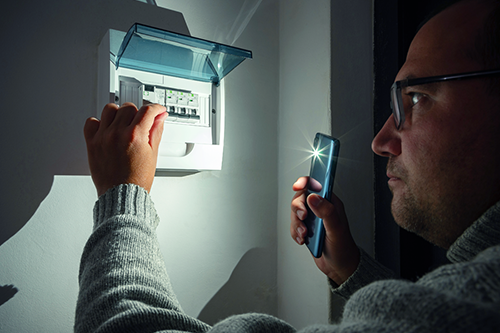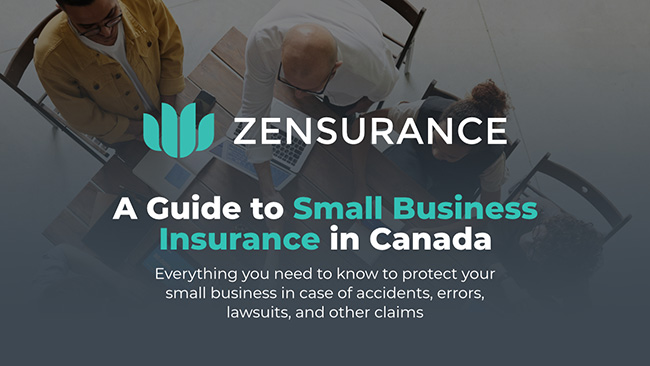Power outages can occur at any time of year. But they commonly occur during the summer when the demand for electricity to power air conditioners is high or because of severe weather that can knock down power lines.
Handling unexpected emergencies and ensuring the continuity of your small business requires thoughtful, in-depth planning. Whether you have a brick-and-mortar location, are an online business, or both, you need to be ready to offset the impact of such events. No power in your shop means no customers walking through your door. Likewise, no power means no internet. While most power outages or blackouts tend to be short-lived, that’s not always the case. A long-term blackout could cost your business thousands of dollars in loss or damage.
Here are nine things a small business owner can do to prepare for the possibility of a sustained power outage:

Related Posts
Categories
1. Draft a Business Continuity Plan
Operating blindly in the dark is not an option. A well-crafted business continuity plan can be your beacon of light during emergencies, including power outages. Share it with your employees so they know what to do if the lights go out. This plan should include a list of emergency contacts and numbers, an evacuation plan and meeting point, and tasks to assign to key employees to perform during an outage. Having this plan in place can provide a sense of security and preparedness for you and your team.
2. Have a First-Aid and Emergency Supplies Kit
Have a fully stocked first-aid kit at your place of business, ensure all employees know where it is, and consider taking a first aid and CPR training course and encouraging your employees to do so.
Also, have a 72-hour emergency supplies kit containing non-perishable food items, fresh water, blankets, a first-aid kit, a flashlight, and other necessities if you or your staff need shelter during a vicious storm. Download our emergency kit checklist for free as you assemble your business’s kit. You can also purchase a 72-hour emergency kit from retailers or the Canadian Red Cross.
3. Invest in a Backup Power Generator
Having a backup power generator on hand to keep some systems in your place of business running can be helpful. For example, if you run a restaurant or grocery store, a backup generator can keep your refrigerators and freezers operating to prevent the loss of perishable goods.
But before using an emergency generator during a power outage, check with dealers, manufacturers, or an electrician regarding power requirements and proper operating procedures. Most generators require adequate ventilation to prevent carbon monoxide poisoning and should be installed outdoors.
4. Ensure Alarm Systems Have Battery Backup Power
Double-check your smoke, fire, and carbon monoxide alarms and security surveillance alarm systems to ensure backup battery power, test them, and change the batteries frequently (at least annually).
5. Use Surge Protectors
Think about installing surge protection devices on computers, TVs or flat-panel screens, microwaves, and fax machines to prevent your equipment and electronics from being damaged or destroyed by a power surge, common during storms and power outages.
6. Keep Flashlights and Spare Batteries at Your Workplace
Get flashlights and extra batteries, or buy plug-in flashlights that stay fully charged unless the power dies. Ensure all employees know where the flashlights and spare batteries are. If you opt for plug-in flashlights, place them in easy-to-find locations such as a hallway.
7. Have a Battery-Operated or Wind-Up Radio
A power outage can affect your internet and cellphone service. Keep a battery-powered or wind-up radio in your office, store, or warehouse to monitor news and weather updates and keep abreast of what’s happening in your region.
8. Automate Data Backups
Regardless of severe weather or power outages, you should encrypt and back up your company’s data regularly to the cloud and consider hiring a backup service provider to store copies of your data at another location. Automating backups helps ensure this critical function is never overlooked.
9. Use a MiFi to Finish Important Work
If the power suddenly goes down while you’re completing an important document or email, a MiFi device can ensure you can finish the task. A MiFi is an inexpensive portable WiFi router that works over a cellular network to keep a laptop or tablet computer connected, which can be crucial for maintaining communication with customers or suppliers during a power outage.
How Long Do Power Outages Last?
Power outages can be unpredictable in terms of how long they last. The hydro power provider in your region may provide an online power outage map to see what areas in your municipality or province are experiencing a blackout. For example, Hydro One tracks power outages across Ontario, and Toronto Hydro does the same for that city.
What to Do During a Power Outage
During a power outage, in addition to tracking power service interruptions and monitoring the weather, take these steps to prevent injuries and damages:
- Unplug electronic devices and appliances to protect them from power surges.
- Turn off stoves and ovens.
- Leave one light turned on to know when power is restored.
- Stay away from downed power lines.
- Lock all exterior doors to prevent anyone from entering your business while the power is out.
- Use flashlights or battery-operated lanterns; avoid using candles since they are fire hazards.
- Conserve your cellphone battery by switching it to low-power mode and refrain from using it unless you need to make an emergency phone call.
- Turn off or disconnect electrical equipment (except refrigerators and freezers) to prevent damage from a power surge.
- Avoid driving unless necessary, as traffic lights and streetlights may be out and roads may be congested with people and vehicles.
What to Do After a Power Outage
When power returns and seems stable, here are a few things you should do at your place of business:
- Carefully check the outside of your commercial property for any signs of damage or immediate danger (like a downed power line).
- Report any downed power lines you see to your hydro provider and keep away from them.
- Plug in and turn on the power to appliances, equipment, and electronics in your office gradually and not all at once.
- If required, restock your emergency supplies kit and return it to its usual storage space.
- If you discover losses or damages to your property, equipment, or merchandise, including perishable food, contact your Zensurance broker to file an insurance claim.
- If your business has refrigerators and freezers containing perishable food, check for signs of spoilage. If in doubt, toss it out! But itemize what is spoiled and provide that list to your broker when filing a claim.
How Business Insurance Can Help Your Small Business After a Power Outage
There are many ways a comprehensive business insurance policy can provide you with financial support to deal with an insurable loss like extreme weather damaging your shop’s roof or triggering a widespread power outage that lasts for days or weeks.
For instance, commercial property insurance is designed to pay for physical damages to your business property and its contents, including the loss of inventory or merchandise caused by extreme weather, flood, fire, vandalism, and theft. Meanwhile, business interruption coverage is designed to pay for the net income you lose following an insurable loss, including rent and employee payroll.
However, be advised that every insurance policy contains exclusions and will only cover insurable losses. For example, a brownout (a temporary reduction of power) is not considered an insurable loss, whereas a power outage caused by a storm may be insured. If you have questions about your policy and its coverages, contact a Zensurance licensed broker.
– Updated July 29, 2024
Related Posts
Zensurance $25,000 Business Grant Recipient: Sol & Sage Yoga
We are thrilled to announce the recipient of our $25,000 grant and recipients of our five $1,000 grants! Read on to learn valuable advice from these business owners for other entrepreneurs, and to discover why they consider insurance a crucial element of their financial stability.
How Canadian Small Businesses Can Use Artificial Intelligence (AI) to Increase Sales and Revenue
Using AI effectively can help Canadian small businesses attract more customers, increase sales, and improve customer service, often without new hires or large budgets. Many business owners are already using AI without realizing it. This guide explains how to start small, stay focused, and grow results in five practical steps.
5 Trends for 2026 Every Small Business Owner Should Know
See what’s hot for the year ahead with these five trends that Canadian small business owners and independent professionals should have on their radar in 2026, and how they can work them into their strategies.
Sign Up for ZenMail
"*" indicates required fields









